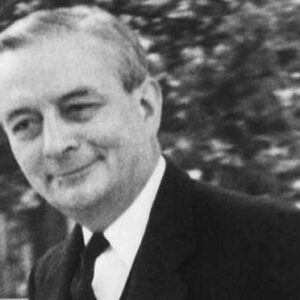Bidault, Georges-Augustin, was a French politician who served as Prime Minister twice. He also served three times as France’s foreign minister in separate regimes. During World War II, he was a key figure in the French Resistance. When Charles de Gaulle became President of France after the Germans were defeated, he was the face of the resistance. He passed major regulations related to workmen’s compensation packages and pensions after becoming the interim government’s leader. He initially supported De Gaulle’s policies in managing France, but he was opposed to France losing all of its colonies. Towards the end of his political career, he founded far-right movements that used terrorism to keep the French colonies from becoming independent. He denounced Charles De Gaulle’s Algerian policy and was forced to leave politics as a result of his disagreement. Despite receiving two of France’s greatest prizes, his achievements were eclipsed by claims of governmental conspiracies, forcing him to abandon the country. Only after being given amnesty could he return from exile.
Childhood and Adolescence
Georges Bidault was born in Moulins, Allier, France, on October 5, 1899.
In his early years, he attended an Italian Jesuit school.
He dropped out of school to join the French army and was stationed in Ruhr. When the Armistice was declared in 1918, he was dismissed.
In 1925, he returned to France and received a degree in history and geography from the Sorbonne.
Georges Bidault’s Career
After receiving his bachelor’s degree in history, Georges Bidault began teaching history in a Paris college in 1931.
In 1932, he formed the ‘Catholic Association of French Youth,’ as well as the ‘l-Aube,’ or ‘The Dawn,’ a left-wing publication.
He began writing a foreign affairs column in which he expressed his disdain for fascism and Nazism. He continued to write this column until 1939.
He joined the French Army when World War II broke out but was captured during the invasion of France in 1940.
In 1941, he was liberated along with other veterans and went to work as a history teacher at Lyon’s Lycee du Parc.
When the ‘National Council of Resistance’s leader, Jean Moulin, was caught and killed by the Germans in July 1943, he became its leader.
In 1944, he was almost apprehended by the Gestapo but narrowly escaped incarceration. In the same year, he created the MRP (Mouvement Républiqueain Populaire).
Bidault was appointed foreign minister by Charles de Gaulle, who led the provisional government in France in 1944.
On behalf of his government, he signed the Franco-Soviet Alliance and the United Nations Charter in December 1944.
He was the head of the French delegation at the United Nations conference in April and June 1945, where he was able to secure a permanent seat for France on the UN Security Council.
After de Gaulle’s resignation on June 19, 1946, he became the interim government’s leader for a few months.
In 1946, as chairman of the interim administration, he passed a number of laws that benefited French laborers.
After the National Assembly elections on November 29, 1946, Bidault resigned from his job.
He supported the dismissal of the Communists from the cabinet and opposed a deal with Stalin while serving as foreign minister in Paul Ramadier’s ministry in 1947.
He negotiated the foundation of a union of western European states, subsequently known as NATO, in 1948.
In 1949, he was elected Prime Minister or ‘President of the Council of Ministers of France, although he only lasted eight months.
In February 1950, at the end of his term, he signed a law that formalized employees’ right to strike in order to get their demands met and set minimum salaries for industrial and agricultural workers.
He served as the ‘Vice President of the Council’ in the Henri Queuille government from 1950 to 1951, as well as the defense minister in the Rene Pleven and Edgar Faure governments.
In 1952, Bidault was named honorary president of the MRP party.
On June 1, 1953, President Vincent Auriol urged Bidault to establish a cabinet, but on June 10, 1953, the National Assembly and his own administration voted against it.
In 1953, he ran for president but withdrew his candidacy after the second round of voting.
In 1958, he was elected Prime Minister of France for the second time, and he endorsed De Gaulle for the presidency.
The ‘Algerian War of Independence erupted, and De Gaulle chose to support Algerian independence, despite Bidault’s passionate opposition.
In 1961, he founded the ‘Organisation de L’Armee Secrete,’ or OAS, a far-right paramilitary organization that promoted terrorism to oppose Algeria’s independence.
In 1962, he was charged with betrayal and conspiracy, and his parliamentary immunity was revoked.
He sought refuge in Brazil and Belgium, where he remained from 1963 to 1967.
After being awarded amnesty, he returned to France in 1968. In the same year, he created the ‘Mouvement pour la Justice et la Liberté,’ a far-right movement.
He was made honorary president of this party, although he soon departed active politics.
Achievements & Awards
For his contribution to the Resistance, Georges Bidault was given a ‘Companion de la Liberation.’
For his achievements as a member of the government, he was awarded the ‘Grand Croix de la Legion d’honneur.’
Personal History and Legacy
In 1945, he married Suzanne Bordel.
Georges Bidault died at Cambo-Les-Baines, France, on January 27, 1983.
Estimated Net worth
Unknown.


